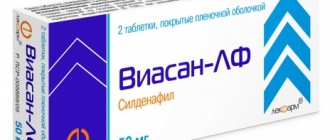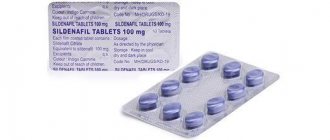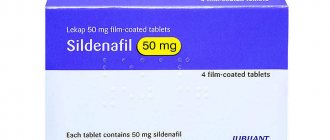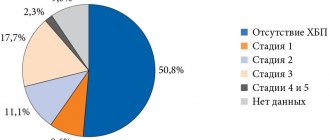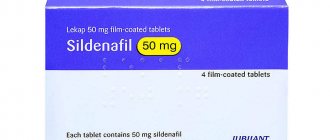Home | About us | Delivery | Advertisers | Login | Registration
Delivery on Sundays and holidays does not work!
- Medicines
- dietary supplementsVitamins
- Categories from A to Z
- Brands from A to Z
- Products from A to Z
- Medical equipment
- beauty
- Child
- Care
- Honey products appointments
- Herbs and herbal teas
- Medical nutrition
- Journey
- Making medicinesStock
Pharmacy online is the best pharmacy in Almaty, delivering medicines to Almaty. An online pharmacy or online pharmacy provides the following types of services: delivery of medicines, medicines to your home. Online pharmacy Almaty or online pharmacy Almaty delivers medicines to your home, as well as home delivery of medicines in Almaty.
my basket
Apteka84.kz is an online pharmacy that offers its customers medicines, medicinal and decorative cosmetics, dietary supplements, vitamins, baby food, intimate products for adults, medical equipment and thousands of other medical and cosmetic products at low prices. All data presented on the Apteka84.kz website is for informational purposes only and is not a substitute for professional medical care. Apteka84.kz strongly recommends that you carefully read the instructions for use contained in each package of medicines and other products. If you currently have any symptoms of the disease, you should seek help from a doctor. You should always tell your doctor or pharmacist about all the medicines you take. If you feel you need further help, please consult your local pharmacist or contact our GP online or by telephone.
© 2022 Pharmacy 84.
Dapoxetine
Are common
The drug is intended only for men with premature ejaculation. The safety of the drug in men without premature ejaculation has not been established; there is no data on delayed ejaculation.
Use with narcotic drugs
Patients should be advised not to take the drug together with narcotic drugs. Concomitant use with drugs that have serotonergic activity, such as ketamine, methylenedioxymethamphetamine (MDMA), and lysergic acid diethylamide (LSD), may result in potentially serious reactions including, but not limited to, arrhythmia, hyperthermia, and serotonin syndrome. Concomitant use with sedatives such as opiates or benzodiazepines may increase drowsiness and dizziness.
Ethanol
Combining the drug with alcohol may enhance the latter's effects on the central nervous system and the neuro-cardiogenic side effects of alcohol, such as fainting, which increases the risk of accidental injury. Therefore, patients should be advised to refrain from drinking alcohol while taking the drug.
Fainting
The incidence of syncope in clinical trials of the drug depended on the patient category and ranged from 0.06% (for a dose of 30 mg) to 0.23% (for a dose of 60 mg) to 0.64% (for both doses combined) in a study with participation of healthy volunteers.
Patients receiving the drug were more likely to have prodromal symptoms, including nausea, dizziness/lightheadedness, and sweating, compared to patients receiving placebo. At a dose of 30 mg, the incidence of nausea was 11.0%, the incidence of dizziness was 5.8%, and hyperhidrosis (sweating) was 0.8%. At a dose of 60 mg, these figures were 21.2%, 11.7% and 1.5%, respectively. The incidence of syncope and possible prodromal symptoms was dose-related, as evidenced by higher rates in patients receiving higher doses than the maximum recommended daily dose of 60 mg. The cases of syncope observed in clinical studies were regarded as having a vasovagal nature. Most of these cases occurred within the first 3 hours after the first dose, or were associated with research procedures in a clinical setting (eg, drawing a blood sample, standing up abruptly, measuring blood pressure). Possible prodromal symptoms, such as nausea, dizziness, lightheadedness, palpitations, asthenia, confusion and sweating, were also usually observed in the first 3 hours after taking the drug and often preceded syncope. Patients should be informed that syncope with or without prodromal symptoms may occur at any time during treatment with the drug. The physician should inform the patient about the importance of adequate hydration and recognition of prodromal signs and symptoms to reduce the risk of serious injury from a fall due to loss of consciousness. When possible prodromal symptoms appear, the patient should immediately lie down so that the head is lower than the body, or sit with the head lowered between the knees, and should remain in this position until the symptoms disappear. If fainting or other central nervous system effects occur, the patient should be warned to avoid potentially traumatic situations, including driving and operating dangerous machinery.
Combining the drug with alcohol may increase neurocardiogenic side effects, including syncope, which increases the risk of accidental injury; Therefore, patients should be advised to refrain from drinking alcohol during treatment with the drug.
Patients at risk of cardiovascular disease
Clinical studies of the drug did not include patients with cardiovascular diseases. Patients with organic diseases of the heart and blood vessels (for example, obstruction of blood ejection from the heart, damage to the valve apparatus, carotid artery stenosis, coronary artery atherosclerosis) have an increased risk of undesirable cardiovascular consequences of syncope of cardiac and other origin. However, there is currently insufficient data to determine whether this risk extends to vasovagal syncope in patients with cardiovascular disease.
Orthostatic hypotension
Clinical studies have described cases of orthostatic hypotension. The physician should inform the patient in advance that if possible prodromal symptoms appear, for example, a feeling of lightness in the head immediately after standing up, one should immediately lie down so that the head is lower than the body, or sit with the head lowered between the knees, and remain in this position until disappearance of symptoms. In addition, the patient should be informed about the need to avoid sudden standing up after prolonged lying or sitting. Prescribe with caution to patients taking vasodilators (for example, alpha-blockers, nitrates, PDE5 inhibitors), due to the possible reduced tolerance of such patients to the orthostatic effect of the drug.
Moderately active CYP3A4 inhibitors
When taken concomitantly with moderately active CYP3A4 inhibitors (erythromycin, clarithromycin, fluconazole, amprenavir, fosamprenavir, aprepitant, verapamil, diltiazem), the dose of the drug should be reduced to 30 mg and caution should be exercised.
Active CYP2D6 inhibitors
Caution is recommended when increasing the drug dose to 60 mg in patients receiving active CYP2D6 inhibitors and in patients with low CYP2D6 activity, as this may increase the level of systemic exposure to the drug with a corresponding increase in the frequency and severity of dose-related adverse events.
Suicide/suicidal ideation
In short-term studies, antidepressants, including SSRIs, were more likely than placebo to increase the risk of suicide and suicidal ideation in children and adolescents with generalized depression and other mental disorders. This effect was not found in adults over 24 years of age. In clinical trials of a drug for the treatment of premature ejaculation, clear data on the relationship of suicidal thoughts with treatment were not obtained.
Mania
The drug should not be taken by patients with a history of mania/hypomania or bipolar disorder; if symptoms of these diseases appear, the drug should be discontinued.
Convulsions
Due to the ability of SSRIs to lower the seizure threshold, the drug should be avoided in patients with unstable epilepsy; if seizures occur, the drug should be discontinued. Patients with controlled epilepsy require careful monitoring.
Admission in children and adolescents under 18 years of age
Not suitable for patients under 18 years of age.
Comorbid depression and mental disorders
If the patient has signs and symptoms of depression, before starting the drug, it is necessary to conduct an examination to exclude the presence of an undiagnosed depressive disorder. The drug should not be taken simultaneously with antidepressants, including SSRIs and serotonin and norepinephrine reuptake inhibitors. It is not recommended to stop treatment for depression or anxiety to start treatment with this drug. The drug is not intended for the treatment of mental disorders (for example, schizophrenia or depression), and should not be taken by men with these diseases, since this cannot exclude an increase in symptoms of depression. Any disturbing thoughts or sensations should be reported to your doctor immediately, and the drug should be discontinued if signs and symptoms of depression occur during treatment.
Bleeding
Cases of bleeding have been described with the use of SSRIs. Caution is recommended when taken concomitantly with drugs that affect platelet function (for example, atypical antipsychotics, phenothiazines, acetylsalicylic acid, NSAIDs, anticoagulants), as well as in patients with a history of bleeding or bleeding disorders.
Renal dysfunction
The drug is not recommended for use in patients with severe renal impairment; patients with moderate to mild renal impairment should exercise caution.
Withdrawal syndrome
There is evidence that abrupt withdrawal of SSRIs used long-term for the treatment of chronic depressive disorders leads to the following symptoms: decreased mood, irritability, agitation, dizziness, sensory disturbances (eg, electric shock paresthesia), anxiety, confusion, headache, lethargy, emotional instability, insomnia, hypomania.
In a clinical study conducted to evaluate the effect of drug withdrawal after 62 days of dosing at a dose of 60 mg (daily or as needed) in patients with premature ejaculation, no signs of withdrawal syndrome were detected. After switching patients to placebo after taking this drug daily, only minor withdrawal symptoms were found in the form of mild to moderate insomnia and dizziness. Similar results were obtained in another double-blind clinical study with a one-week withdrawal period after 24 weeks of use of the drug at a dose of 30 mg or 60 mg as needed.
Effect on the ability to drive a car and other mechanical means
When taking the drug, cases of dizziness, impaired attention, fainting, blurred vision, and drowsiness have been described. The patient should be warned to avoid situations where injury may occur, including driving and operating dangerous machinery.
Compatibility of Dapoxetine and alcohol
? Data from studies indicate that the combination of a reasonable amount of alcohol-containing drinks and Dapoxetine does not lead to bad consequences. Simultaneous use is possible, but subject to restrictions regarding the dosage of the drug and the volume of alcohol consumed.
If you do not follow the recommendations, the development of such adverse reactions as:
- feeling of nausea;
- dizziness;
- pain in the head area;
- bowel disorders in the form of diarrhea;
- liver dysfunction;
- sudden increase in blood pressure;
- disorders of the heart muscle and blood vessels.
Can Dapoxetine be taken with alcohol?
Whether or not you can take Dapoxetine with alcohol is something everyone must decide for themselves. You must understand that you will get maximum effect and condition only after using the tablets in their pure form. Next, we will consider the main scenarios for combining the drug with alcohol, and cases when their joint use should be categorically excluded.
Interaction of Dapoxetine with alcohol
Ethanol molecules can greatly change the specific effects of the drug on the body. In some cases, alcohol will cause total neutralization of Dapoxetine.
The effects of combining alcohol with Dapoxetine can be as follows:
- Reduced exposure to pills. Reviews about the compatibility of Dapoxetine and alcohol can often be found online. They claim that the drug often does not manifest itself at all under the influence of alcohol, and sometimes a decrease in erection is also observed - the penis becomes flaccid and loses hardness.
- Toxic reaction of the body - alcohol will destroy liver cells;
- Increased neuro-cardiogenic processes – rapid heartbeat and fainting, which lead to accidental injuries;
- Other unpredictable manifestations in the body.
Do not forget also that Dapoxetine was developed as an antidepressant, and such drugs are generally not recommended to be taken under the influence of alcohol.
In the best case, being “under the influence”, you simply will not feel the strong effect of the drug. But there are other precedents when a combination of substances causes severe agitation, which can result in hospitalization.
Tips for sharing
Some tips for those who are planning to combine Dapoxetine and alcohol:
- Consider the effect of alcohol on your body - for some men, even 50 grams of vodka will be a super-strong dose that will affect the general condition of the body;
- Try to allow at least a few hours between drinking and taking the pill;
- Use the permissible dosage of the medication and contraindications.
Do not forget that there are a number of cases when using Dapoxetine is unacceptable in principle.
The main contraindications include:
- too much sensitivity to the composition of the drug;
- susceptibility to heart disease and changes in blood pressure;
- treatment with other antidepressants and some strong medications (antibiotics);
- kidney and liver dysfunction;
- lactose intolerance.
If you belong to one of the above risk groups, then you should avoid taking Dapoxetine with alcohol. In addition, the medicine should not be taken if you are under 18 years of age.
Reviews of the experience of combining Dapoxetine with Alcohol
Reviews of other men on forums and other specialized sites will help you find out more about the compatibility of Dapoxetine and alcohol
After a long analysis of reviews from patients taking the drug, we can conclude the following:
- when using Dapoxetine in its pure form, it gives very good results and prolongs sex several times;
- when combined with alcohol, the effect is significantly reduced, and sometimes completely unnoticeable (ejaculation occurs as quickly as without pills);
- With a large amount of alcohol consumed, men experience some unpleasant symptoms (dizziness, headache, nausea, erectile dysfunction, rapid breathing, excessive sweating, etc.).
How long after drinking alcohol can you take medicine?
Considering that a small amount of alcohol (up to 200 mg) can be combined with the drug, it is allowed to use these two substances at the same time, but subject to the dosage.
If the amount of alcohol-containing drinks taken was greater, it is better to refrain from using the medicine.
There is no answer to the question of how long after you can take medicine, because everything will depend on the amount drunk, the strength of the drink, and the man’s body. It takes 1 to 2 days to completely remove alcohol from the human body.
